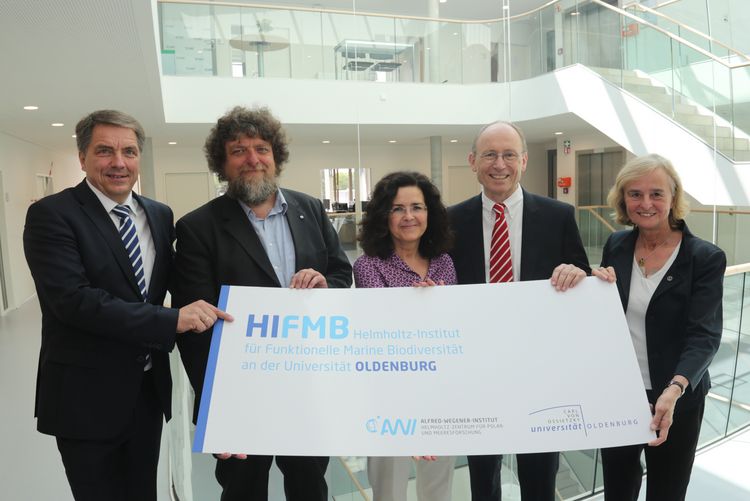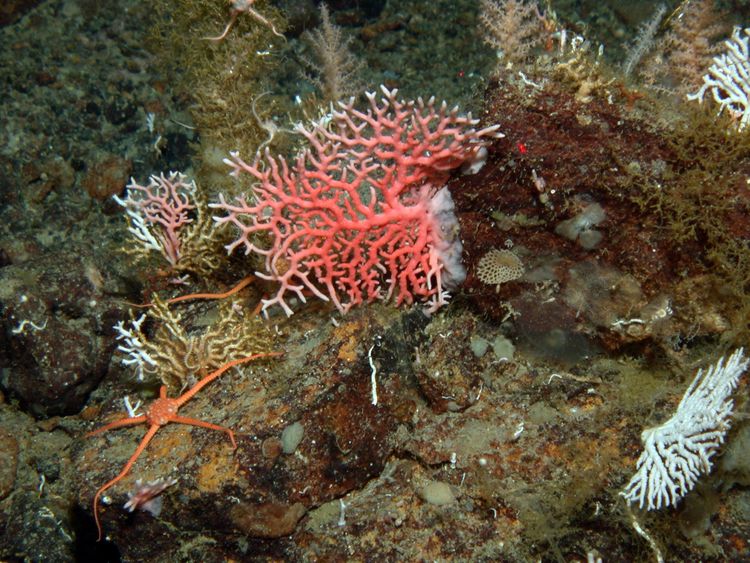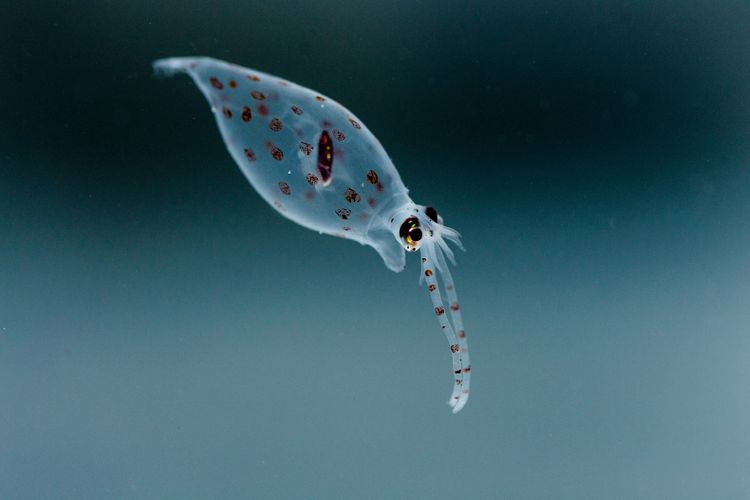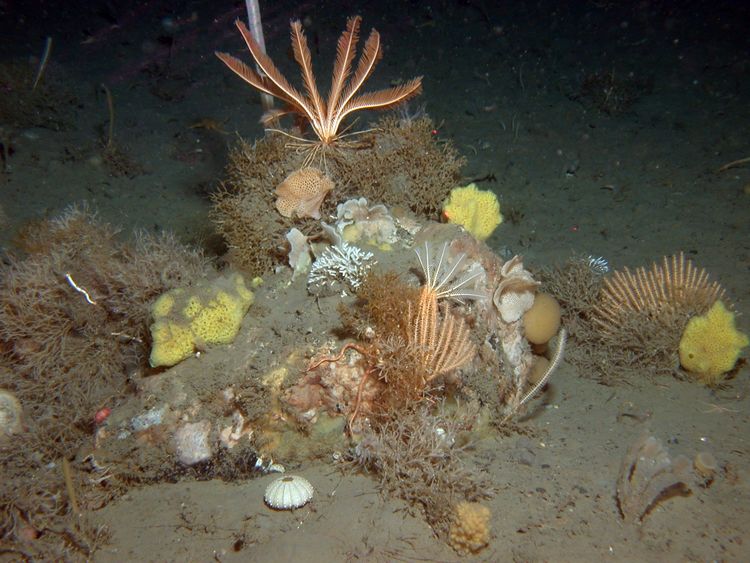Addressing research gaps and providing the scientific basis for marine conservation – these are the aims of the Helmholtz Institute for Functional Marine Biodiversity. On Wednesday, the institute was officially inaugurated at the University of Oldenburg. A step that will allow the University and the Bremerhaven-based Alfred Wegener Institute, Helmholtz Centre for Polar and Marine Research (AWI), to combine and build on their research excellence in this field.
The habitability of our planet is closely linked to the diversity of its flora and fauna – and not just on land, but also in the water. How and why is marine biodiversity responding to global change? How are these changes affecting marine ecosystems and their functions? And how can society adapt to or mitigate them? From now on, researchers will focus on these questions at the Helmholtz Institute for Functional Marine Biodiversity (HIFMB).
“With the founding of the Helmholtz Institute for Functional Marine Biodiversity, Oldenburg is establishing itself as a major centre for marine and climate research at the international level,” said Gabriele Heinen-Kljajic, Minister of Science of Lower Saxony, during the event. “The institute is a prime example of how excellent fundamental scientific research and social relevance can successfully be combined. The oceans represent the largest and most essential ecosystem on the planet. They have a considerable influence on climate developments, and at the same time are shaped by the impacts of climate change.”
The State of Lower Saxony will finance the new institute during its initial phase, contributing 23 million euros through the end of 2020, which will be used in part to erect a new institute building. In this regard, the City of Oldenburg has provided a plot of land in the Technology Park in Pophankenweg, near the university campus. According to Jürgen Krogmann, the Mayor of Oldenburg: “The city has closely accompanied and actively supported the process from the outset. Especially in terms of finding a suitable property, we made it clear early on that we consider it our responsibility to find a solution. The addition of the new institute not only represents an important milestone for Oldenburg as a centre of scientific research, but also reflects the great success of our marine researchers’ decades of hard work.”
Following the initial phase, as of 2021 the Helmholtz Association will take over the basic funding for the institute, amounting to 5.5 million euros per year – 90 percent of which will come from federal funds and 10 percent from the State of Lower Saxony.
“If we want to understand how an ecosystem works, we have to research not just the diversity of species and its function, but also the role of human beings in the marine environment,” emphasised AWI Director Prof Karin Lochte. “Today, in many cases the key question is no longer whether we use the seas and oceans, but rather how we use them.” To find answers, the new Helmholtz Institute will combine the expertise of natural and social sciences researchers, which, as Lochte explained, is the only feasible way to develop modern concepts for the sustainable use of our oceans.
Researchers from the AWI and the University of Oldenburg have cooperated in a number of successful projects over the years. The new institute will allow them to jointly research essential aspects of biological diversity – from the genetics of individual marine fauna, algae and bacteria, to functional analyses of entire ecosystems.
University President Prof Hans Michael Piper stressed that every change in the oceans has direct consequences for human beings. The oceans provide food and raw materials, shape our air quality and global climate, break down pollutants and offer a venue for relaxation and tourism. Further, he went on to say, “Providing a scientific foundation for marine conservation and ecosystem management is an immensely important and pressing task – and simultaneously the next logical step in the evolution of the internationally recognised biodiversity and marine research conducted in Oldenburg.”
In order to develop innovative nature conservation and management strategies, the HIFMB will pursue an integrative research approach, designed to combine a natural sciences basis for conservation concepts with social sciences expertise in the analysis of social and political processes. Accordingly, new Working Groups on “Marine Conservation” and “Marine Governance” are currently being formed at the HIFMB. Further, a new Biodiversity Informatics Working Group will closely monitor the integration of Big Data in marine conservation, ensuring that the rapidly growing quantity of available data on biological diversity can be used to help protect marine ecosystems. Lastly, so as to better grasp the factors influencing diversity the new Biodiversity Theory Working Group will focus on combining classical theoretical ecological models with spatial, evolutionary and biogeochemical approaches.
As HIFMB Founding Director Prof Helmut Hillebrand explains, “These four new Working Groups will not only close remaining research gaps, but will also provide crucial interfaces between different types of expertise in marine biodiversity research. Accordingly, our goal is to attract outstanding international experts for each group.” Tentatively, applications for these positions will be accepted starting this autumn.
Initially, a total of eleven existing Working Groups from the University of Oldenburg and the AWI will cooperate at the HIFMB: six from Oldenburg’s Institute for Chemistry and Biology of the Marine Environment (ICBM) and Institute for Biology and Environmental Sciences (IBU), and five from the AWI. The Helmholtz Institute is currently recruiting scientific staff for the first integrative research projects in Oldenburg. Under the auspices of HIFMB Director Hillebrand, marine researchers will be working in rented offices located a stone’s throw away from the Wechloy Campus, home to many natural sciences facilities, until the completion of the new institute building in Pophankenweg – slated for 2022.






